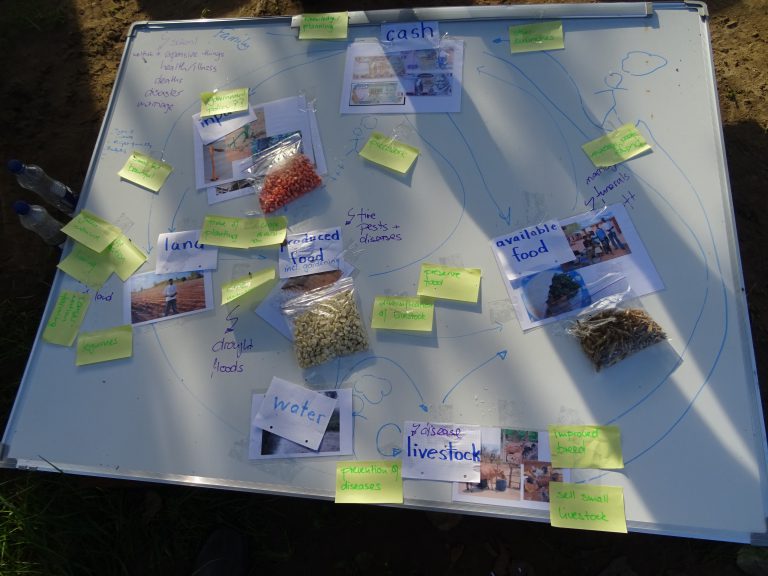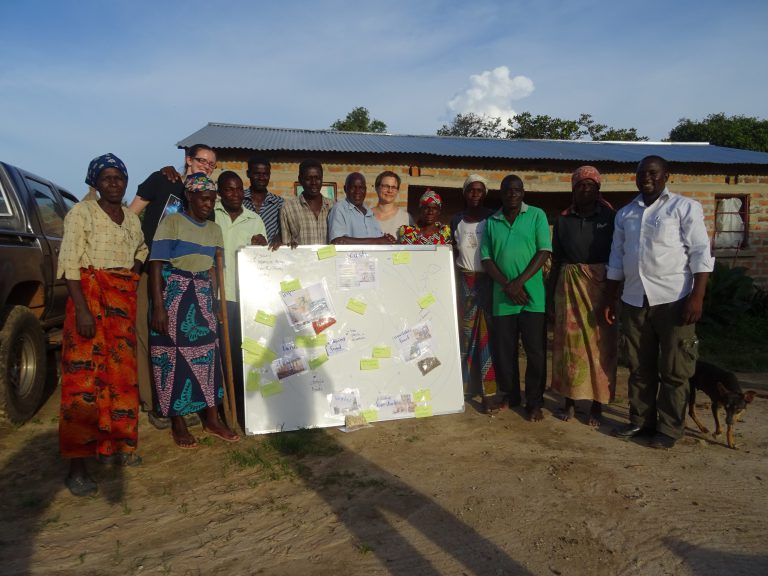In February 2015, we ran two intriguing and inspiring facilitated modeling workshops with ten small-scale farmers each in Central Region, Zambia, check out a brief video. These workshops were the logical next step after our work on studying farmers’ dynamic decision making.
The main motivation for running these workshops was to investigate the feasibility of a facilitated systems thinking group intervention with small-scale farmers. However, we also wanted to see how farmers’ knowledge and understanding of the farming and food system develops in the course of the workshops and consequently learn about those mechanisms that facilitate knowledge change. Gerid Hager did a wonderful job analyzing knowledge, knowledge change and group interactions in her EMSD thesis and in the 2015 System Dynamics Conference paper.
We started with a blank whiteboard and developed, in close interaction with farmers, the basic story that they had told us regarding how they try to achieve and maintain food security and livelihoods more in general throughout the year and over the years in reaction to changing framework conditions and climate change. For telling this story, we first placed variable names on the whiteboard and then had farmers match the words first with pictures, and then with objects.
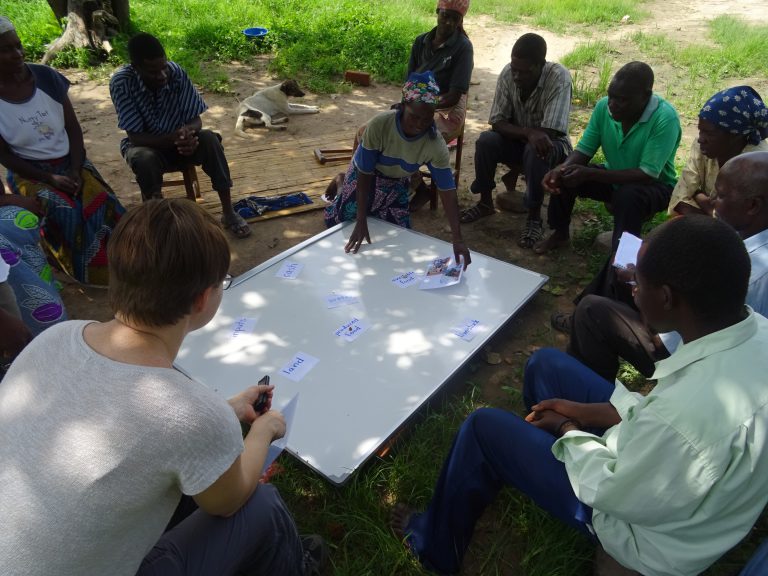
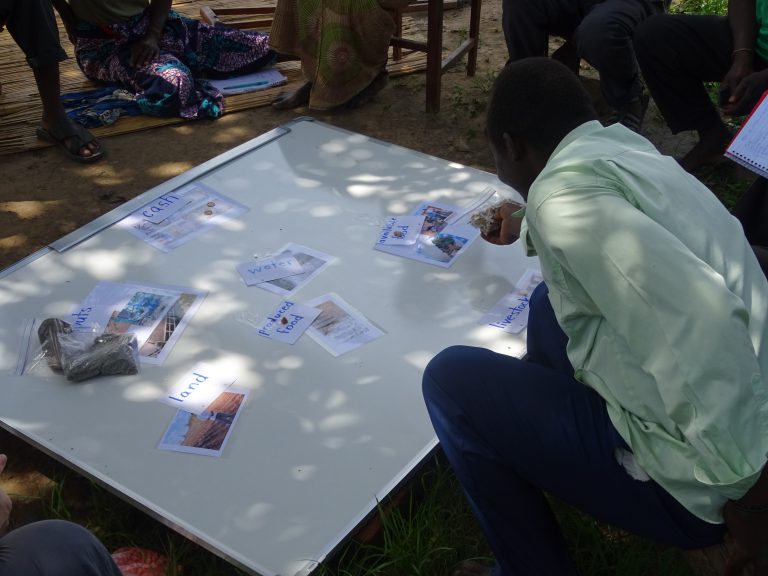
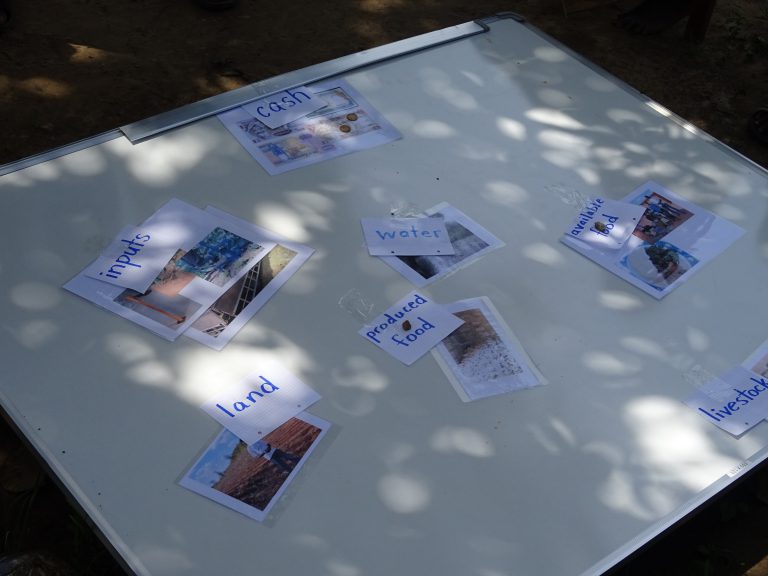
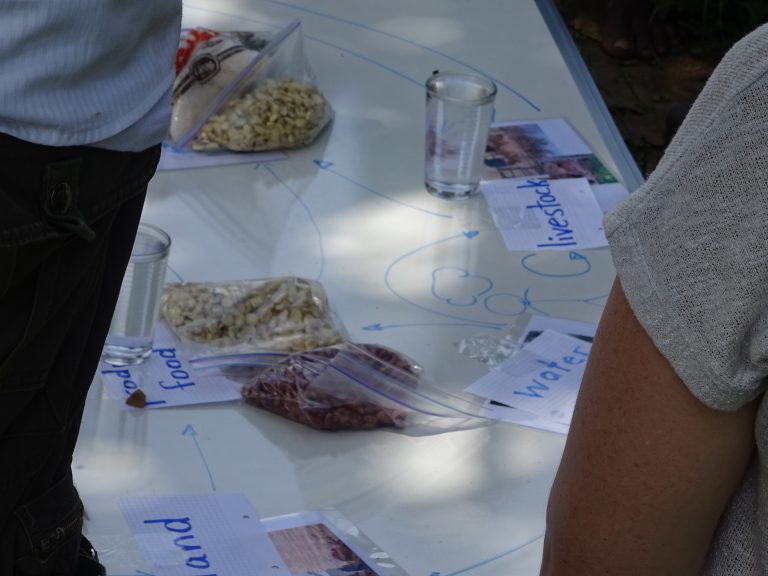
This quite naturally led to the discussion of how the variables are connected with each other and how these connections form feedback loops. We illustrated the nature of these feedback loops using water glasses. Continuous pouring of water into all the glasses, for example, represented a reinforcing feedback mechanism.
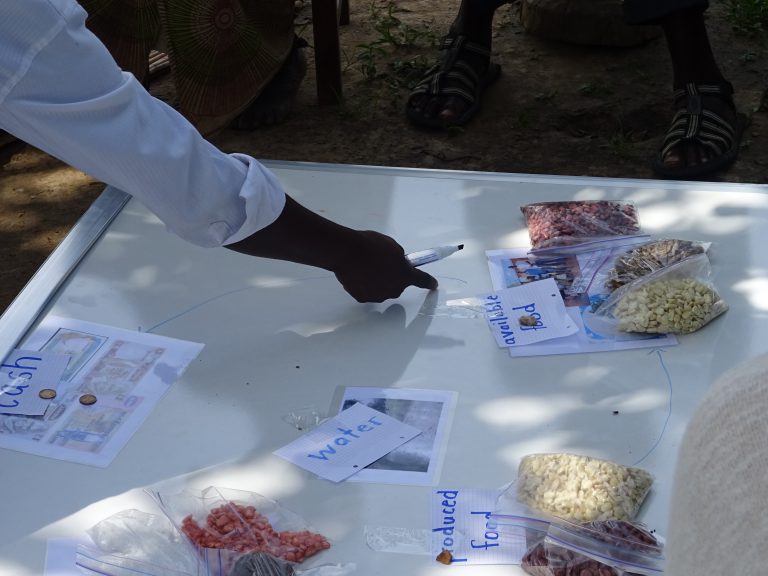
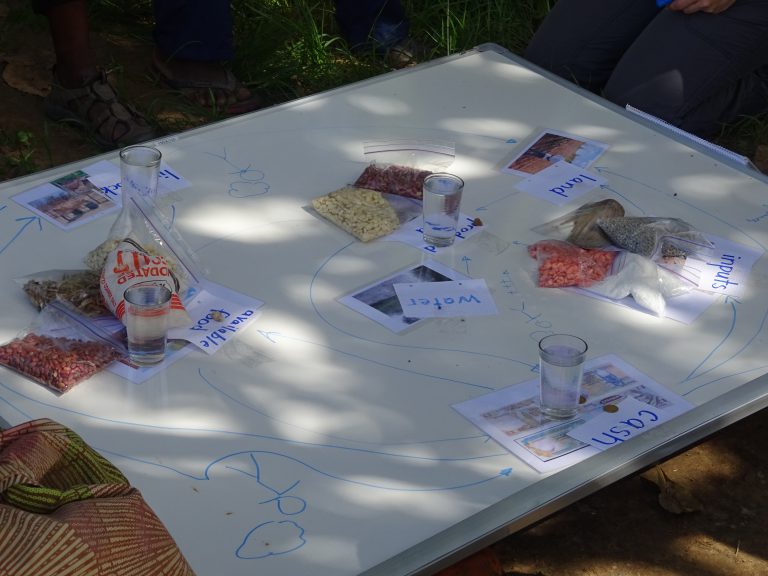
With the mechanisms in place, we spent quite a bit of time discussing how some of the options that farmers have available, such as piecework, might only fill the “available cash” water glass in the short run but lead to continuous draining of all water glasses in the medium and long run. This was the first time that things got really inspiring. The second time was when the discussion turned to how the government is or isn’t helping farmers and what they could to on their own, instead. It was at this point that we had to wrap up but obviously, this is where the next series of workshops will start from.
